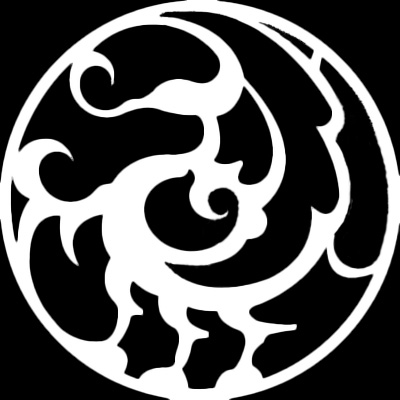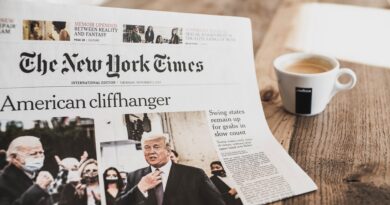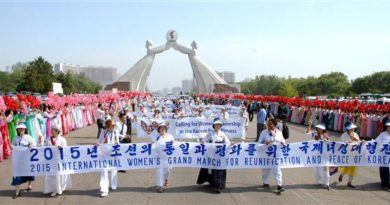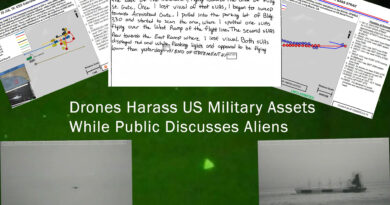President Trump’s Incoherent North Korea Policy
It wasn’t that long ago that President Trump promised to meet the North Koreans with “fire, fury, and frankly power, the likes of which the world has never seen before.” At the 72nd session of the United Nations General Assembly, President Trump gave a speech calling KJU “Little Rocket Man” and even went so far as to sign an Elton John CD to be delivered by Secretary of State Mike Pompeo. Alas, that CD was never delivered and Trump’s rhetoric — along with the United States’ DPRK policy — quickly changed. The US went from a maximum pressure sanctions policy reminiscent of the Bush era to the warm hearted maximum engagement policy of the Clinton era. Clearly, there are factions within the US government bureaucracy who differ on North Korean policy and these factions receive alternating terms of influence with the president as time moves on. The shifting US policy in response to these factions was demonstrated in 48 hours this past weekend.
Foreign Policy via Twitter
On 21 March the US Treasury Department announced new sanctions on two Chinese shipping companies for conducting business with Pyongyang in violation of sanctions. These companies are Dalian Haib International Freight Co. Ltd. and Liaoning Danxing International Forwarding Co. Ltd. Following the Treasury Department’s announcement National Security Advisor John Bolton wrote on Twitter, “The maritime industry must do more to stop North Korea’s illicit shipping practices. Everyone should take notice and review their own activities to ensure they are not involved in North Korea’s sanctions evasion.” The latter part of Bolton’s tweet may be directed at the ROK’s own sanctions violations noted in the recent PoE report.
Shortly after the Treasury announcement, the DPRK announced they would be fully withdrawing from the joint liaison office at the Kaesong Industrial Complex in North Korea. However, Pyongyang indicated the South Koreans were welcome to stay in Kaesong and the ROK Ministry of Unification announced that a further 54 personnel will be heading to Kaesong on 25 March. This news came as the Moon Administration revealed that their DPRK policy differed from the US policy and that the South Koreans will be going their own way regarding relations with the North. Further, the Moon Administration announced that they will be sending printing materials to the north to modernize Pyongyang’s ability to print textbooks, despite South Koreans questioning their tax dollars going towards Juche propaganda.
As all of the above unfolded, President Trump — as he is apt to do — took to Twitter to clarify his administration’s DPRK policy. Trump tweeted, “It was announced today by the US Treasury that additional large-scale sanctions would be added to those already existing sanctions on North Korea. I have today ordered the withdrawal of those additional sanctions.” Press Secretary Sarah Sanders added, “President Trump likes Chairman Kim and he doesn’t think these sanctions will be necessary.” Understandably, this confused both the media and members of the administration prompting an unnamed official to tell Reuters that the president’s tweet was not, in fact, about the Chinese shipping companies; rather, the tweet was meant to reference a decision not to move forward with additional large-scale sanctions against the DPRK at this time. One can only surmise that Treasury was meant to announce large-scale sanctions in addition to the sanctions announced on 21 March targeting the two Chinese shipping companies, and the president was unaware of the fact that these large-scale sanctions were never announced.
What to Make of This
The fact that Treasury never announced new large-scale sanctions, yet President Trump felt it necessary to withdraw those non-existent sanctions via Twitter reflects a disconnect within the administration. National Security Advisor John Bolton has maintained a tough position on North Korea since his position as Undersecretary of State for Arms Control and International Security. He was quoted in Mike Chinoy’s book Meltdown,
I kept saying it doesn’t matter if you talk bilaterally or six-party talks or twenty-five party talks. That’s not going to get the North Koreans to give up nuclear weapons. And what we need to do is go to the Security Council, see what we can get there, and then whatever we do there ratchet up the pressure politically, economically, and, if need be, militarily
The book details the political infighting within the Bush Administration with regards to DPRK policy. This level of infighting was reflected in the Roh Moo Hyun Administration between the Jusapa and Dongmaengpa factions favoring self-reliance, and alliance respectively. I have written that the Jusapa won that fight in the ROK and it appears they may be winning that fight in the US as well. I have no doubt that the Moon Administration is pressuring the Trump Administration to return to negotiations with the DPRK or risk eroding the ROKUS alliance. Initially, Moon and Kim attempted to appeal to President Trump’s ego by dangling the promise of a Nobel Peace Prize and unprecedented peace on the Korean Peninsula before him. It would appear that the John Bolton faction managed to keep the president grounded resulting in the increased pressure from the ROK/DPRK.
We are currently in dangerous times for the ROKUS alliance that can only benefit the DPRK. South Korean leftists have believed for years that the US is an obstacle to peaceful reconciliation on the Peninsula and the Moon Administration’s announcement that they will go their own way demonstrates the will to remove that obstacle. Pyongyang is successfully driving a wedge between the ROKUS alliance and President Trump’s incoherent policy is a reflection of that. Unfortunately, Trump’s practice of policy making via Twitter not only opens him up to domestic attack, but sends mixed messages to both the ROK and the DPRK. At this point, perhaps the Trump Administration should pursue summit meetings with the Moon Administration before aiming to tackle the North Korean question.




Pingback: US and North Korean Diplomats in China - SAMJOKO
Pingback: Upcoming Trump-Moon Summit - SAMJOKO